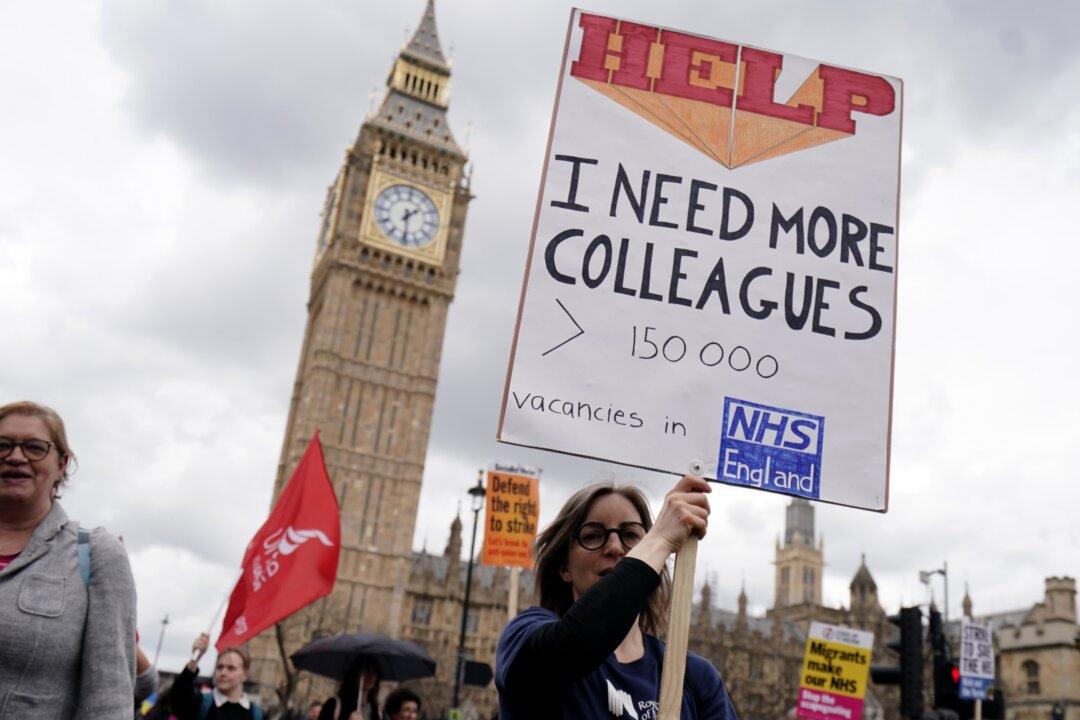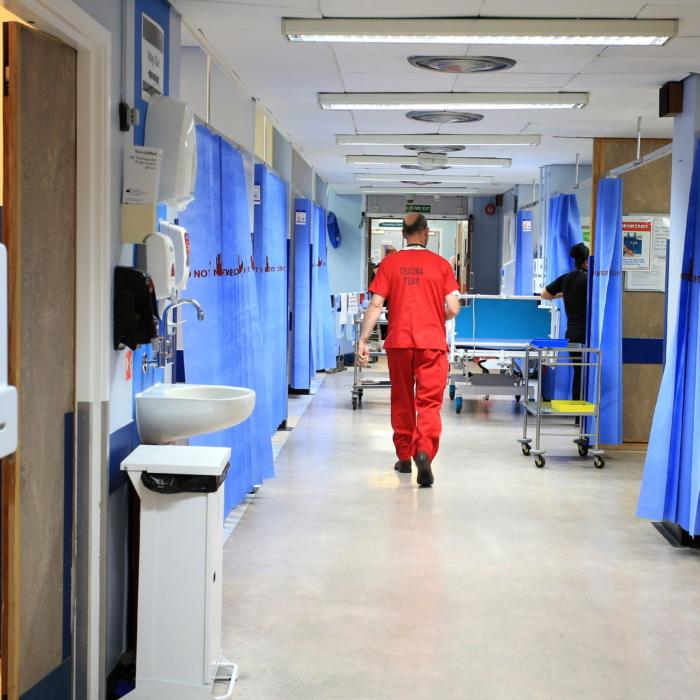The Royal College of Nursing (RCN) has called for a minimum staffing level in the NHS to be enshrined into law by the next government, saying this will help ensure patient safety.
A third of hospital shifts were missing at least a quarter of the registered nurses they needed, while in the community almost 4 in 10 shifts were missing up to half of the planned number of registered nurses, the survey revealed.
The RCN said that nurses sometimes have to oversee dozens of sick and injured people at a time as it called for safety-critical limits on the maximum number of patients a single nurse can be responsible for.
The survey found many nurses reported feeling “demoralised” as they felt patient safety was being compromised, with significant numbers in accident and emergency and outpatient departments reporting having more than 51 patients to care for on a single shift.
A nurse working in the community in the south-west of England, said: “We have days when we have 60 visits unallocated because we don’t have enough staff.
“Every day we are asked to do more. We are always rushing.”
Another, also working in the community in the south of England, said: “We leave over 50 patients requiring nursing care unseen on a daily basis due to poor staffing levels. This leads to increases in hospital admissions and death.
Patients Left to ‘Die Alone’
In a hospital in the West Midlands one nurse, said: “I have not been able to sit with patients who are dying, meaning they have been left to die alone.“I have not had the time to make sure patients are fed properly and have adequate drinks.”
A midwife, working in a hospital in Yorkshire, said: “Completely unsafe care due to unacceptable staffing levels. The standards of what is acceptable care for a service to provide have fallen so low, the benchmark is survival.”
RCN acting general secretary Professor Nicola Ranger said the present situation was “dangerous to patients and demoralising for nursing staff.”
She said: “In every health and care setting, nursing staff are fighting a losing battle to keep patients safe.
“Without safety-critical limits on the maximum number of patients they can care for, nurses are being made responsible for dozens at a time, often with complex needs.
“We desperately need urgent investment in the nursing workforce but also to see safety-critical nurse-patient ratios enshrined in law.”
List of Demands for Next Government
The RCN has put together its own manifesto, calling for substantial pay rises as well as an end to restrictions on the right to strike and mental health support for all nursing staff.Its manifesto also calls for an end to so-called “corridor care” and for whistleblower protection for those who raise concerns about unsafe staffing.
To train more nurses, the RCN wants the next government to fund nursing degrees and offer a job guarantee for graduates and continued funding for professional development.
The RCN is further calling for what it terms the “exploitation” of health and social care workers and improved funding for the sector and the ending of what it calls “punitive” immigration policies. It also wants increased overseas aid spending to tackle global nursing shortages.
The organisation is also calling for legal protection for the title of “nurse,” in a similar way to that of the title “doctor.”







